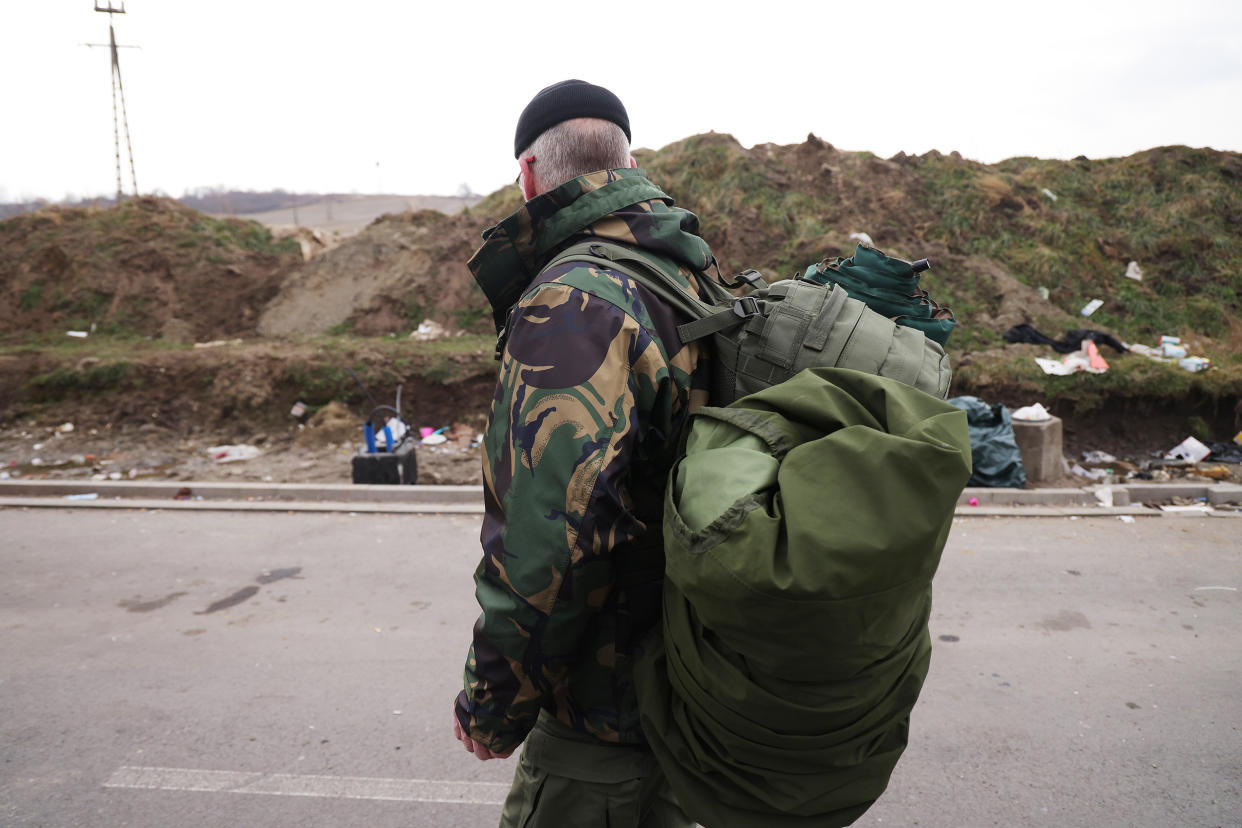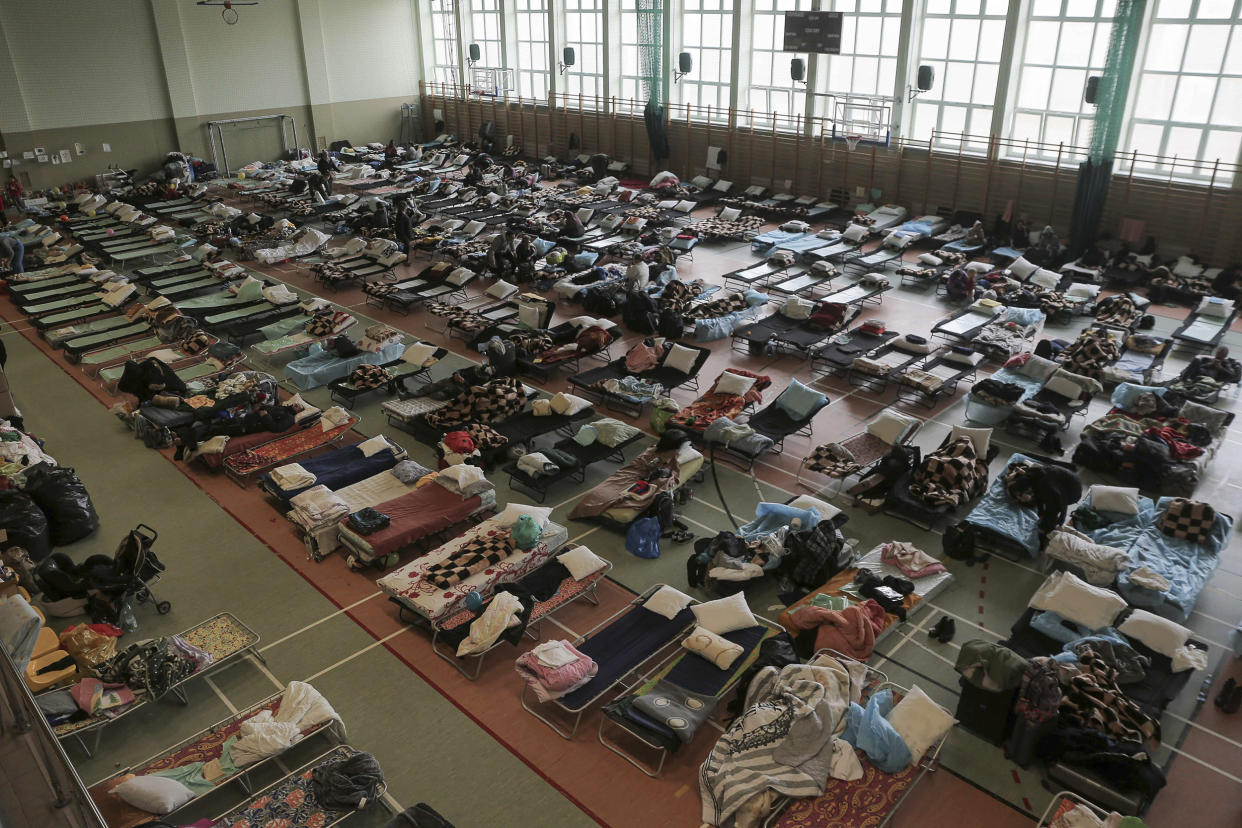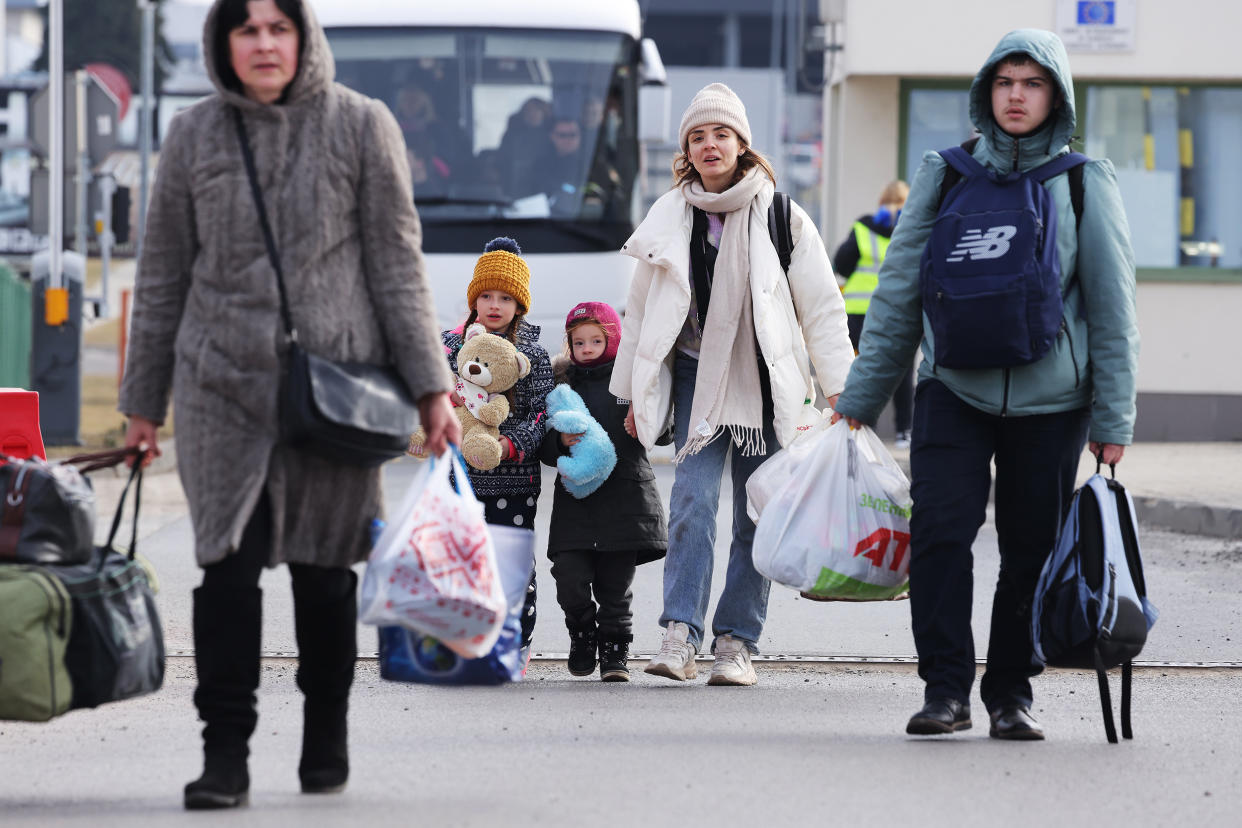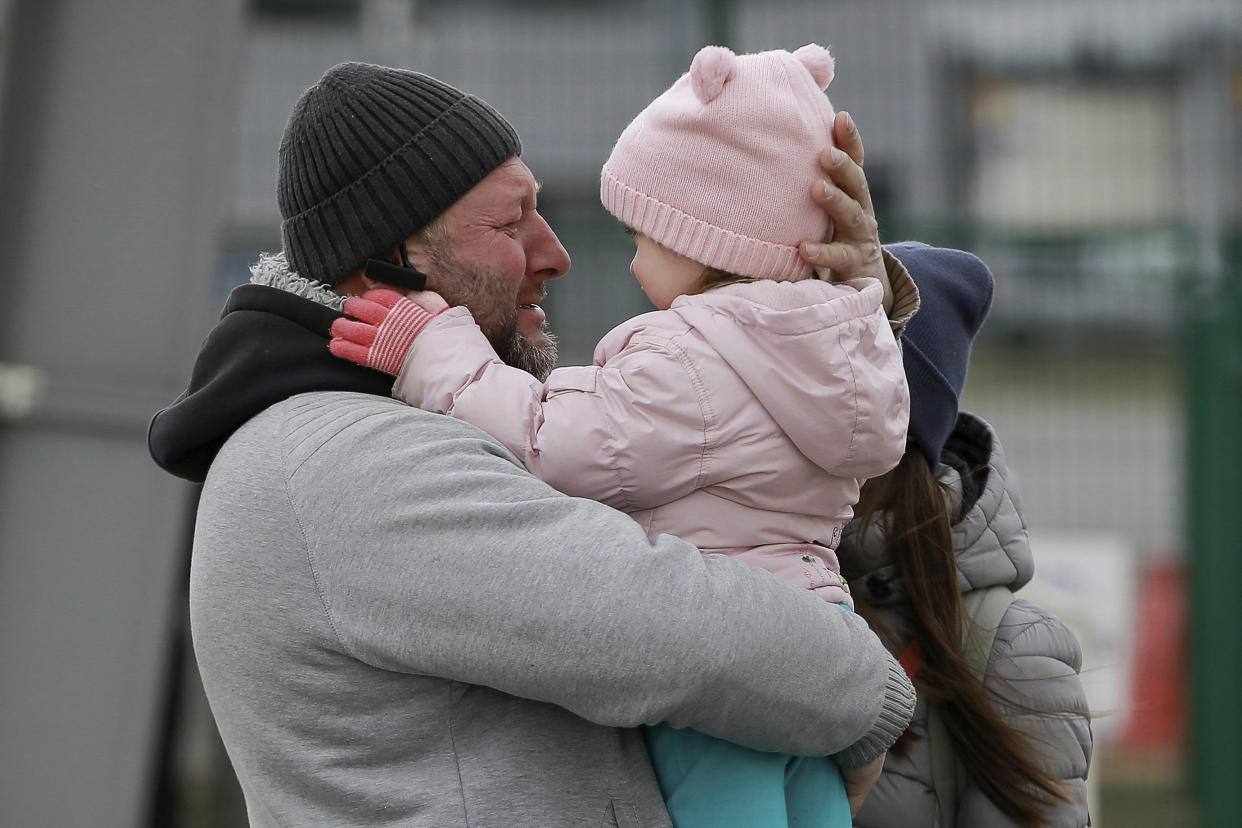MEDYKA, Poland — While busloads of Ukrainian refugees streamed across the border Thursday into Poland, small groups of determined-looking men were heading in the opposite direction to fight the Russians.
Most appeared to be Ukrainian émigrés in their 20s and 30s, but some could also be heard speaking other languages. Many of the men had black tactical boots hanging from their duffle bags.
And judging by the license plates of the cars dropping them off at the crossing in this Polish border town, they had come from as far away as Italy and Germany.
Among those heading east into Ukraine was a man with a military bearing from Great Britain who identified himself only as Ian and said he was 62.
“I’m going to fight,” Ian told NBC News correspondent Jay Gray.
Then Ian walked up to the Ukrainian border guards, who looked him over, checked his papers and sent him to the left to join the other hard-eyed men waiting for a bus bound for the battle against the Russians.
Ian and the others were answering the call that embattled Ukrainian President Volodymyr Zelenskyy posted on his website Sunday for “friends of peace and democracy” to join their new brigade, the International Legion of Territorial Defense of Ukraine, and help them fight the Russians.
“This is the beginning of a war against Europe, against European structures, against democracy, against basic human rights, against a global order of law, rules and peaceful coexistence,” his statement said.
Zelenskyy said Thursday that some 16,000 foreigners have already joined the brigade, a number NBC News could not immediately confirm.
The Ukrainian leader’s appeal harked back to the 1930s when the embattled Spanish government called for international volunteers to help fight in the civil war against Gen. Francisco Franco and the fascists, a struggle Ernest Hemingway immortalized in “For Whom the Bell Tolls.”
In France, the Ukrainian Embassy has been actively recruiting former soldiers to join the fight, and it set up a Facebook page with information and paperwork they would need to fill out, The New York Times reported.
More than 1 million Ukrainians, mostly women and children, have fled in the eight days since the Russians invaded their country, and the pace at which civilians have been crossing the border into Poland has been accelerating as the fighting has grown fiercer.
An army of Polish volunteers backed by relief workers from other countries has set up refugee aid centers in nearby cities, like Przemysl, an ancient city of some 61,000 people.
From there, Ukrainian refugees have been bused to major Polish cities like Warsaw, Krakow and Gdansk, as well as to Germany, Austria and even Denmark.
In recent days, the border crossing at Medyka has been the scene of emotional reunions as émigré Ukrainians reunited with loved ones who had traveled for days to get there.
There have been outbursts of anger from Ukrainians frustrated by the bureaucracy on both sides of the border. And there have been allegations of racism lodged by Africans and Asians who had been living in Ukraine and who say their escape was delayed by Ukrainian border guards.
But on Thursday, the evacuation appeared to be going smoothly.
Rather than marching across the border, most of the escapees boarded buses provided by Poland's national fire department on the Ukrainian side.
Waiting on the Polish side was a couple who gave their names as Jim and Alyona and said they had driven to Medyka from Belgium.
Alyona, who's Ukrainian, was waiting to collect her sister, who had been traveling by train for several days from the city of Dnipro.
Visibly distraught, Alyona said she had heard from her sister, who was still at least three to five hours away from Medyka.
"I will wait here all night if I have to," Alyona said.
Konstantin Shukhnov reported from Medyka, Poland, and Corky Siemaszko from New York City.
CORRECTION (March 4, 2022, 8:05 a.m. ET): A previous version of this article misstated the first name of the general who led the fascists in the Spanish civil war in the 1930s. He was Gen. Francisco Franco, not Gen. Ferdinand Franco.
Source: Read Full Article




